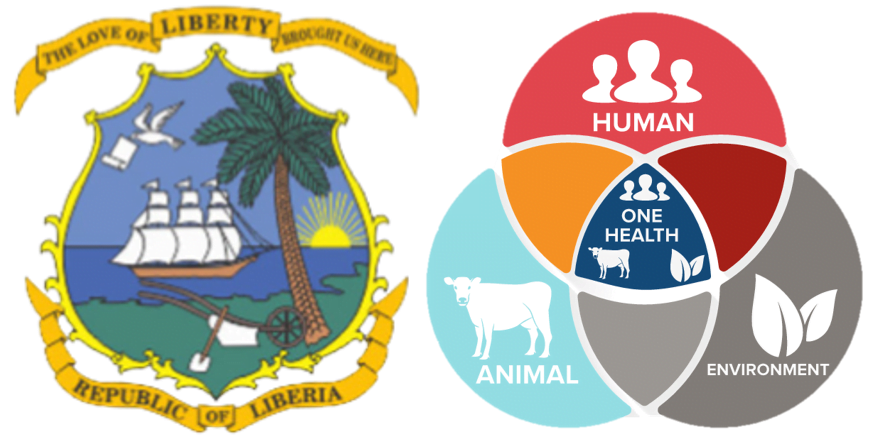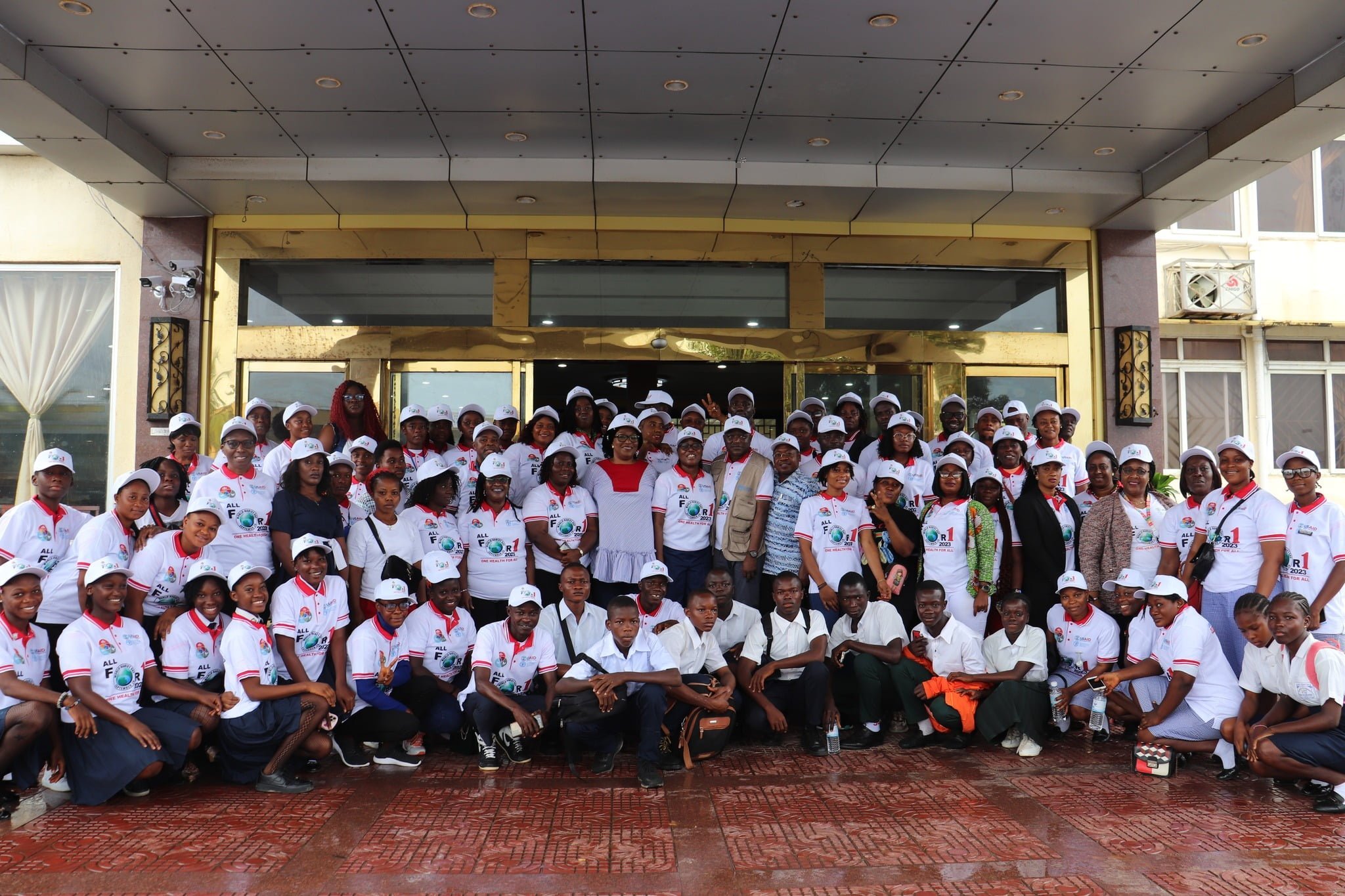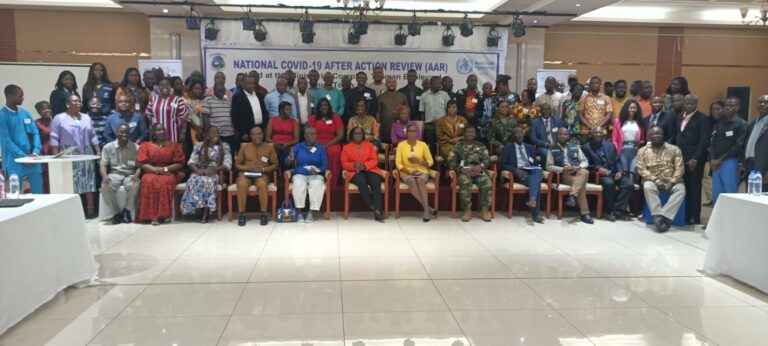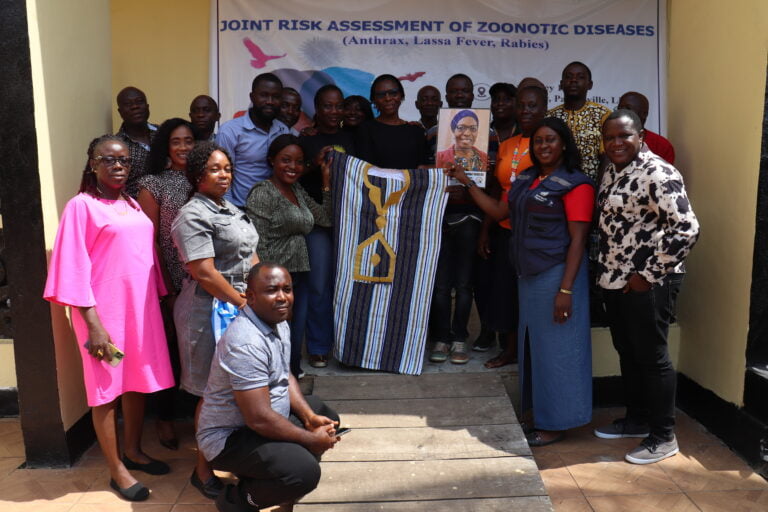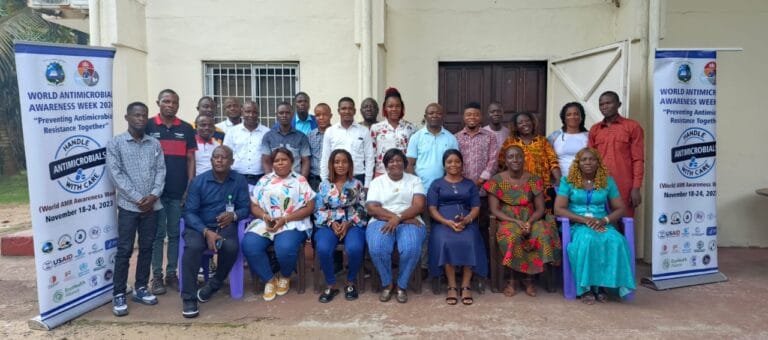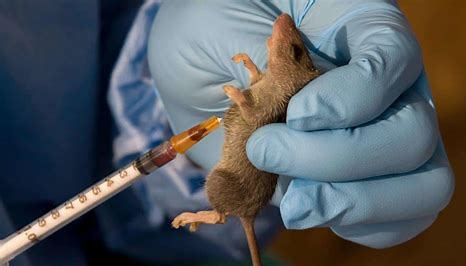𝐋𝐢𝐛𝐞𝐫𝐢𝐚 𝐂𝐨𝐦𝐦𝐞𝐦𝐨𝐫𝐚𝐭𝐞𝐬 𝐖𝐨𝐫𝐥𝐝 𝐑𝐚𝐛𝐢𝐞𝐬 𝐃𝐚𝐲 𝐰𝐢𝐭𝐡 𝐚 𝐂𝐚𝐥𝐥 𝐟𝐨𝐫 𝐂𝐨𝐥𝐥𝐚𝐛𝐨𝐫𝐚𝐭𝐢𝐯𝐞 𝐄𝐟𝐟𝐨𝐫𝐭𝐬
On September 28, 2023, World Rabies Day, stakeholders gathered at the Golden Gate Hotel in Paynesville, at a significant program dedicated to raising awareness about the deadly virus and promoting the One Health framework. The event was a collaborative effort to bring together experts, community members, and students in the fight against rabies.
Under the overarching theme of “𝗔𝗹𝗹 𝗳𝗼𝗿 𝟭, 𝗢𝗻𝗲 𝗛𝗲𝗮𝗹𝘁𝗵 𝗳𝗼𝗿 𝗔𝗹𝗹,” the program underscored the vital connection between the health of humans, animals, and the environment in the context of rabies prevention and control. This year’s event was marked by a special emphasis on educating the younger generation, with students from various schools in Montserrado County actively participating.
The event commenced with presentations by experts and technicians from the United Nations Food and Agriculture Organization (FAO), the Ministry of Agriculture (MOA), and the National Public Health Institute of Liberia (NPHIL) – highlighting rabies prevention and control and the disease burden in Liberia.
According to data from NPHIL, in 2022, Liberia recorded 2,093 (suspected rabies) animal bites cases with 6 deaths in five hotspot counties. Montserrado County accounted for two deaths, while Bong, Grand Bassa, Margibi and Rivergee Counties accounted for one respectively. Also, the data shows a sharp increase of bite cases in 2023. From epidemiology week 1 to 37 (January 2 to September 17, 2023), 2,615 bites cases (suspected rabies) were reported from across the country. Montserrado County accounts for 742 cases, followed by Nimba (412), Grand Bassa (221), and Grand Kru (202).
The data also shows that during the period, 4 deaths were recorded with Montserrado County (2), Grand Bassa County (1), and Grand Kru County (1). Currently, there is no human testing capacity in Liberia. Rabies confirmation (in animal) is done at the Central Veterinary Laboratory of the MOA.
Meanwhile, data from the Central Veterinary Laboratory of the Ministry of Agriculture shows that 67% of animal samples tested between 2019 and 2023 were positive of rabies. However, according to the MOA, most suspected rabid dogs are killed and eaten before the arrival of animal health workers. This, according to the MOA is a serious challenge in conducting laboratory analysis. Through the support of the World Bank-funded Regional Disease Surveillance Systems Enhancement (REDISSE) project, the MOA has deployed surveillance officers across the country, the first time in Liberia’s history. However, the country’s surveillance system remains challenged as these officers are currently without contracts following the closure of the REDISSE project on August 31, 2023. This and the lack of animal sample transport mechanism are critical challenges faced by the MOA.
Speaking at the 2023 World Rabies Day event, Health Minister and Chairperson of the Steering Committee of the One Health Platform, Dr. Wilhemina S. Jallah, stressed the importance of interdisciplinary cooperation in preventing rabies and highlighted the need for renewed commitment to the fight against the disease. Dr. Jallah called for policies that will prioritize public health, the wellbeing of animals and communities.
Also speaking, FAO Country Representative to Liberia, Madam Bintia Stephen Tchicaya called for collaboration, equality, and the strengthening of control systems in the fight against rabies. She emphasized more community engagement efforts in reducing rabies fatality.
Dr. Garmie Voupawoe, the keynote speaker, emphasized the importance of conducting a nationwide animal census. Dr. Voupawoe believes that the data from the census will guide national policies. He also called for the establishment of routine animal vaccination sites across the country.
At the same time, the World Health Organization (WHO), represented by Dr. Moses R. Jeuronlon, highlighted the need for a more comprehensive engagement of all stakeholders, if the global target of 2030 rabies elimination should be achieved. Other speakers including the United States Agency for International Development (USAID)’s Global Health Security Senior Advisor, Dr. Armando Cotrina, emphasized that dog vaccination is critical, as it is cost effective. He said through vaccination, Liberia will prevent deaths caused by the rabies virus. Other institutions, including Breakthrough Action, Liberia Chimpanzee Rescue and Protection, Africa One Health University Network (AFROHUN), EchoHealth Alliance, the Forestry Development Authority (FDA), and the Environmental Protection Agency (EPA) have reaffirmed their commitments to the fight against rabies.
Moreover, students who participated in the event were particularly engaged, asking questions, and actively participating in discussions. Their involvement showcased the importance of educating the younger generation about rabies and the One Health approach.
World Rabies Day at the Golden Gate Hotel in Paynesville, Liberia, was a powerful reminder that rabies remains a significant public health threat, but it is a threat that can be controlled and eventually eliminated through collaborative efforts. The One Health approach, as demonstrated on September 28, 2023, brings together experts, communities, and the youth to work toward a future where rabies is a thing of the past.
